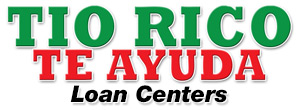
Saving for a baby is important. If you have a newborn on the way, especially if it’s your first, you may be a little panicky about expenses. Depending on where you live and the cost-of-living there, meeting your baby’s needs and child-care over the first couple of years can run upwards of $7,000 to $12,000 annually.
The good news is that there are ways to save money. You can start a savings account before the baby arrives to have money on hand for diapers and formula. Even better, chances are some of you and your baby’s material needs will be met with a baby shower. When that happens, be sure that those invitations have a baby registry listed on them. Choose a modest list of items to place on the registry that fits your lifestyle and the space you live in. Though it may be tempting to plan for stuff over a year or two, it’s best to focus on meeting the baby’s material needs for the first 6 months.
What you don’t receive at a baby shower, keep in mind that any purchases you make in support of your baby’s well-being are not life-long investments. In most instances, a purchase is simply to get the baby through a month or, if you’re lucky, two. In fact, not only is it okay to scrimp, but you should strive for cutting costs on those material goods at every opportunity.
With that in mind, here are a few tips on saving money before bringing baby home (or if a newborn has arrived) and avoiding overspending on items:
Clothes
When it comes to clothing, it’s easy to get carried away. If you’re not careful, you can quickly run up hundreds, if not thousands of dollars on just clothing. Never buy clothing too far in advance. Sudden growth spurts are common for newborns and you could be buying a winter coat in October that is too small come December. Because your baby will grow fast, shop at discount stores, consignment shops and thrift shops. You’ll find low-priced irregular markdowns and secondhand clothes as good as new. You can find great, inexpensive maternity clothes, too. You can also shop from home and find great deals online on eBay and Craigslist.
Another thing to consider if your family is just starting to grow when buying clothes, think hand-me-downs and choose unisex shades and styles of clothing. No sense investing in lots of pinks and orange sherbet colored clothes. Though your first may be a daughter, your second child may not and you will have to start buying clothes for him. Speaking of hand-me-downs, if you are in a big circle of friends and family with growing children, pounce on those hand-me-downs whenever the opportunity arises (and be sure to pass forward).
Gear and Furniture
Those same discount stores and thrift shops are also good for finding gear and furniture. And so is Craigslist. You can find car seats, umbrella strollers, full-size strollers, cribs, playpens, and so on for 70% or 80% less than what you’d pay full retail price for. Pretty much anything not gifted at the baby shower. As with clothing, hand-me-downs or just borrowing items like a crib from your sister can save you big.
Shoes
Dropping $30 or $40 or more on leather footwear for your baby that doesn’t walk is impractical. In fact, buying shoes for an infant is a monumental waste of money. As your baby learns to stand and balance and take those first few steps, they will learn to do it faster in their bare feet, inside. What you will need are socks and soft booties. They last and will keep their feet warm.
Diaper Strategies
Depending on your baby’s weight range when born, you may not want to invest in that many boxes of newborn diapers (if any). The average weight for newborn babies in the US is 7 lbs. That means half are in the 8-14 lb range when they are born and ready for size 1 diapers. If your baby is on the cusp, ask the hospital for a sampler pack of diapers before you leave. Babies grow fast. If you are looking to score on diapers, put sizes 3 and 4 on your baby registry.
Food
Make no mistake, breastfeed as long as you possibly can. Your breast milk is great for your baby and your baby’s health. If you are a working mom, when it’s time to return to work, and your baby still wants your milk, invest in a pump. The transition to formula and foods come fast enough. Usually, after 6 months 85% of mothers stop nursing. Because formula can get expensive, hold on to any samples and coupons. Before leaving the hospital ask for samples (many give them upon request), and also ask your pediatrician for samples each visit. You can also sign up for baby-food company emails and newsletters where you will find coupons (and savings).
If your baby needs a special doctor-ordered formula blend, check with your healthcare plan to see if they cover part or all of the costs. If you are buying jars of carrot and zucchini puree or apple and banana sauces, start making your own (list a blender on that registry). It’s better for the baby and you’ll save a few bucks. Check online for free baby-food recipes.
If you need some fast cash My Tio Rico may be able to help. Either a personal or auto title loan might be a good fit for you and your growing family.

